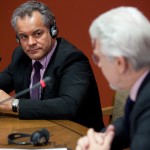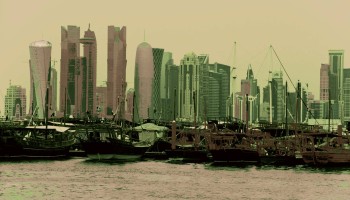Magistrate Jose de la Mata said on Wednesday that there are “irregularities” in eleven contracts signed between 2005 and 2014 for more than 48 million euros (US $54 million). He proposes that former Defex president José Ignacio EC and eight other people including board members of the company – which markets Spanish manufactured defense equipment – be taken to trial.
He claims, according to a a statement issued by the National Court on Monday, that there is a "solid and consistent" evidence of the payment of bribes to Saudi Arabian officials.
“All the operations developed by Defex in Saudi Arabia consisted of obtaining public contracts by paying illegal commissions to authorities and public officials,” the statement explains, with Mata’s opinion being that it constitutes “the crimes of corruption in international commercial transactions, corruption in business, bribery, money laundering and crime of organization and criminal group.”
A state-owned Saudi company gave Defex the necessary permits to export arms and ammunition and then, through the creation of a “complex constellation” of companies according to El Pais, Defex paid illegal commissions in return for no service to individuals with good connections to Saudi authorities, as well as to Defex executives.
One military equipment contract with a Saudi representative was signed for $21 million, the actual value of which was $16 million. Another payment of $8.5 million was awarded to a Saudi company for services whose existence there is no evidence of. Another five transactions totaling $68 million between 1992 and 2004 to a company named Peninsula Inc Ltd, headquartered in the Cayman Islands, are similar in that various invoices offer no description of services and there is no contract, the magistrate noted.
Peninsula and other firms are believed by investigators to be shell companies intended for siphoning funds to individuals who could help secure contracts and conceal earnings from illegal commissions.
Mata’s findings comes after examining 23 years worth of arms sales to Saudi Arabia, after an inquiry was set up in 2014 to investigate suspicious transactions in Angola wherein police equipment was sold “through heavily padded invoices” which ended up being distributed among Angola’s public servants and Spanish company executives, El Pais reported.
There are 27 people on trial for the Angola case, according to El Mundo, and the company could also face trial for its activities in Cameroon.
A judge will now decide whether to proceed with a trial in the Saudi Arabia case, after which the Office of the Prosecutor will have ten days to present an indictment.
The company chose to enter voluntary dissolution in 2017, approved by the Spanish government, because of the damage to its reputation from the investigation. The company was 51% owned by the Spanish state, while the other 49% is in the hands of private businesses whose main activity is arms sales.






